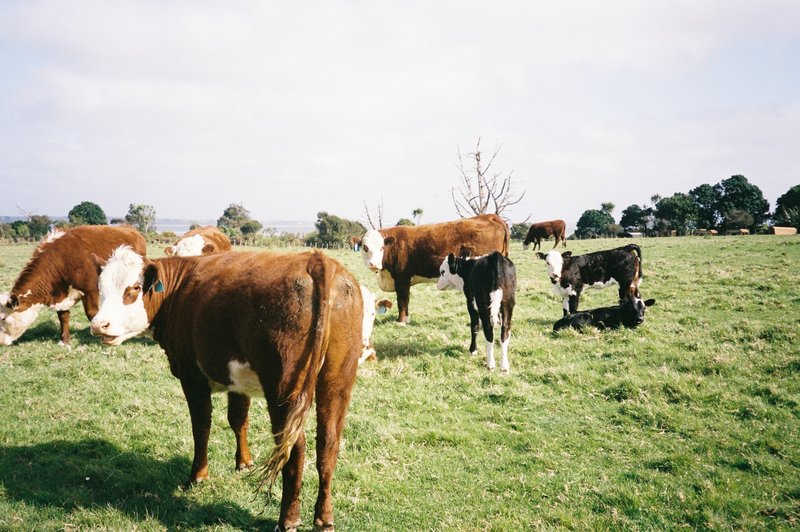Writing a piece on climate change solutions is not an easy task. There is a lot of information to cover and simultaneously, many intertwined problems and thematics to understand. The following is the introduction of a series I will publish over the next year. The purpose is to identify and compile the steps that any of us can undertake to make significant change happen, figuring out the larger picture of our climate crises resolution, for you to act. But firstly, what is happening on our Earth that is so alarming?
Here is a little story. My friend Victoria used to live in Svalbard, a Norwegian archipelago 1300 km from the North Pole. There, you carry a rifle with you at all times outside of the city, as there are more Polar bears than people roaming these lands. You could cross paths with those inhabitants while on your Sunday hike. In Svalbard, Summer temperatures are no greater than 12 ℃. It is a cold region. However, last July, on the 26th, the capital Longyearbyen reached 21.7 ℃, a temperature disrupting the natural, local way of life. Phenomenons like this have occurred continuously across the globe—every year reaching the biggest, the hottest, or the coldest, the most violent episode to date until the coming year will break another record. All indicators are red. Climate change, induced by rising temperatures, is now difficult to ignore, and the situation on the planet is worsening. Biodiversity, water resources, forests, soils, and entire ecosystems are falling apart, life as we know it is slowly disintegrating. No doubt, humans are next on the list.
Global warming is a simple problem. Its main trigger is the overproduction of greenhouse gas emissions and simultaneously the destruction and depletion of the natural resources regulating these gases, mainly the oceans, rainforests and topsoil—a result of our current capitalism-based economy and industrial system, overconsuming natural resources, reducing Earth's ability to mitigate greenhouse gases in the atmosphere. Our economic system, born out of the industrial revolution at the end of the nineteenth century, is shaped by human minds. Humans think in terms of now, a mindset where long-term equals a lifetime, one generation. Under this economic model, there is no "seven-generation planning" like the Iroquois used to do, no models of stewardship and sustainability beyond a lifespan. And this is incompatible with the long-time of the Earth.
The carbon dioxide and other greenhouse gas variations are a story playing out over a millennium. In the past centuries, global warming happened on the planet as a natural occurrence due to variations in solar activities and volcano manifestations. After all, the Vikings discovered the Arctic during the Medieval Warm Period, 300 years ago and called it Greenland for a reason. However, modern civilisation has disrupted climate courses in less than 100 years. The trouble is coming from this time frame. Because Nature's way is a long-term commitment, even if human activities drastically drop, stopping carbon dioxide release in the atmosphere, the results will take ten, twenty or thirty years to affect—consequences of such disruptions lasting for thousands of years. And the political representation and corporate organisations affecting the situation don't seem to measure accurately the risks involved in playing with climate.
Before climate change, understand the nine-planet boundaries
Johan Rockström and his team established that the Earth encompasses nine planet boundaries:
- Climate change
- Biosphere integrity (biodiversity loss and extinction)
- Biogeochemical flows (phosphorus and nitrogen)
- Ocean acidification
- Land-system use
- Freshwater use (green water and blue water)
- Stratospheric ozone depletion
- Atmospheric aerosol loading
- Novel entities (chemical pollution)

Follow this link and this one (where the above sketch is taken from) to learn about the specificities of the concept and the detailed description of each boundary. The idea here is that when human disturbances cross a limit, the planet loses its ecosystem's balance which we all depend on to live and stay alive. On top of that, all these boundaries are intertwined, like pretty much everything on Earth. So if one limitation is affected, it will ripple effect on the others. For example, ocean acidification will have consequences on biosphere integrity. The ozone layer depletion will affect climate change, impacting freshwater use. Everything is connected.
Last year, humankind partially crossed another planetary boundary, green water from freshwater use. Scientists consider green water as the moving blood of the atmosphere, meaning if we modify its cycle, the planet's health will be affected, hardly withstanding violent changes, such as rising temperatures. Earlier, in January 2022, we had passed novel entities, aka chemical pollution. Climate change, biodiversity loss, land system use and biogeochemical flows are long gone. It is not looking good.
So from there, the main focus is drastically reducing carbon emissions production. But C02 is not the only life-threatening gas on Earth. Methane has eighty times more warming capacity than carbon dioxide, driving 25% of global warming emissions. Lucky us, somehow, it only powers through that much during the first twenty years of its release in the atmosphere. In short, C02 has long-lasting heating effects, while methane has short-term consequences, yet more powerful. And other men-produced gases are influencing global warming. So to make calculations easier, scientists have created a unit measurement called CO2eq, which encompasses the global warming potential (GWP) of different greenhouse gases. With one unit, we can calculate and make comparisons more simply. So, we want to target all these atmospheric warming gases, and for that, we need to focus on what produces them and the pollution they come from and identify the reach of our influence on them.
In 2019, the world's average carbon footprint was approximately 6.45 tons of CO2eq per capita. It doesn't mean a US citizen will have the same carbon footprint as someone living in Cameroon. The type of industries (oil, gas, etc.), GDP, and living standards, amongst other criteria, will drive the value of the number. For example, the medium CO2eq of a New Zealander in 2019 was 15.18 tons, Australia was 24.14 tons, the US of America 17.54 tons, Nigeria was only 1.76 tons and India 2.46 tons. The reduction target to keep going in a liveable environment is 2 tons of CO2eq. You will understand the extent of our collective task. And as people living in pollution-driven Westernised societies, responsibilities fall upon us. Yet, the political representation and corporate organisations affecting the situation don't accurately measure the risks of playing with climate.

Politics and climate-sceptics
If we pay attention to the news and political discourses, the sense of urgency is not there at all. It is like our authorities, those who govern us, and the mainstream media are in semi-denial, keeping the people unaware of what is at stake. They live in another dimension, one where the polluting industries want to keep doing what they do because they make a lot of money. We understand that mitigating climate change is not just about reducing carbon dioxide emissions but also touches on domination, power disruption, and social, ecological and gender justice issues.
Yet it is now impossible for them to completely refute or hide the existence of climate disruption. More and more people in the poorest, as well as the wealthiest countries, are live-facing the rage of Nature, but still, there seems to be no real sense of emergency from those in power. Climate change is not covered as would be a soccer world cup, a war, some urban violence or the cost of living crisis. Or the Kardashians. Moreover, it was only a few weeks ago that French president Emmanuel Macron shamelessly stated during his end-of-year allocution, "Who could have predicted [...] the climate crisis and its spectacular effects, again, during summer in our country?". I beg your pardon, sir. I am still determining where this man was all these years, but in my country, scientists and climate specialists have voiced their concerns since 1989.
Despite the evidence, climate scepticism is live. The Obs'COP 2019, an international poll conducted globally last year, shows that around a third of the population does not believe that humans are responsible for climate change to any degree, or even in the reality of climate change. Political representation reflects this position, the ruling class being more of an impediment to change than a driver for transformation. Still, the defiance towards climate change science, fuelled by the misinformation of a few, and the cynicism on science uncertainty are thankfully fading. Today the scientific consensus about the origins of climate change is one hundred per cent. The entire body of studies, over 11 000 research, recent and independent, without exception, come to the same general conclusion—human activities are responsible for enhancing global warming.
The debate gradually pivots on how to ponder the disaster into a manageable territory and prepare for an uncertain future. Preventing environmental breakdown and systemic collapse is about challenging our most profound and least-examined beliefs. Take the carbon footprint, putting on people's shoulders their accountability of producing carbon emissions. The carbon footprint concept that gained popularity in the 2000s was heavily pushed by BP, one of the major emitters of carbon emissions, through an advertising campaign—the same way the beverage and packaging giants, Coca-Cola, PepsiCo and Anheuser-Busch did with plastic pollution in the Seventies. Pollution becomes your problem and not the liability of the industry responsible for creating the issue in the first place. These are two cases of ordinary, deeply engraved notions and tools for a better environment, promoted by governments that are pushed by problematics industries because they fit their agenda. And for the same reasons, we hear more about plastic recycling than agroforestry.
The importance of the UN Intergovernmental Panel on Climate Change group
Have you heard of the IPCC, the Intergovernmental Panel on Climate Change group? It is a United Nations body working on human-impacted climate change. Between 1990 and 2022, this panel of scientists and researchers published six comprehensive and fourteen special reports on particular topics. All you need to know is that what is happening and what needs to be done globally is in those reports. However, who has read one fully? Certainly not Emmanuel Macron!
In 2016, the IPCC warned policymakers that we had twelve years to implement the reforms keeping global warming under 1.5 ℃. Then, at the end of 2020, with just eight years left to engage, the leading countries of this modern civilisation didn't take any significant steps for change, quite the opposite—it seems industry lobbies have never been whispering so intensely into governments' ears. We remember France, for example, and their massive step-back on pesticides ban. And no plan for a system's reform, of course. And so the latest IPCC report, released in April 2022 (next due in March 2023), is crystal clear. Greenhouse gas emissions keep rising, despite the warnings. This trend needs to change in the next three years to avoid a 3.2℃ global warming scenario, a deadlier one than staying under 1.5℃. With a 3.2℃ increase, every single kilogram of carbon emissions will be impactful, intensifying climate change effects at all levels, from life to systems. If you live coastally, consider selling and moving somewhere else. These issues should be the subject of lively conversations everywhere. It is time, as individuals, to question our place on this planet, the system we live within, and for who it is designed. Some things are not working, so what can WE do for a safer future?
I don't have all the answers, but this question requires a shift in mindset and willingness to change your actions, and on Lagom, I want to share with you the bigger picture that helps us navigate change and dictate our choices. We need to look at these actions to implement them as a whole. These practices have to improve the global situation now, in five, ten, and twenty years from now. We will be witnessing very little of the results. It is about thinking of the future of other people and beings that we don't know or even exist yet. Though it will still benefit the individual on the moment, it is about a holistic vision—for the Earth and society, but not for ourselves. And that makes the task difficult, from a political point of view, because politics' primary objective is short terms re-election. And because we live in a profoundly selfish society, individuality matters most than community well-being.
Let's return to Svalbard for a minute. Melting ice is not ideal for the local Polar bears. We have known that for a long time, and clearly, leaders and corporates don't care. Yet there is something else. Ice melting is not excellent either for cemeteries. In such a region, it turns out they bury dead bodies in the permafrost, the frozen soil beneath the ice. They never rot; instead, they freeze. Some who passed away in 1918 still carry the Spanish flu, a deadly virus well alive in the frozen ground, and the risk of dispersion is real. Similar virus dispersion happened elsewhere, and Covid-19 demonstrated no boundary for a virus globally. According to this study, the cost of climate change will be as high as 3.6% of GDP. A "healthy" economy being around 2% to 3% growth, the math quickly demonstrates what the economy will be financing, to the detriment of the people's well-being, including stakeholders. Every single soul will be affected, no matter where we live.
We need to push our representation, encourage our community, and improve ourselves to significantly slow global warming and look forward to a liveable future. The series will be divided into essential aspects of change, like cultural and political shifts, then a personal journey towards low-carbon, sustainable living through diverse thematics. So much work, but together, we can do it.



